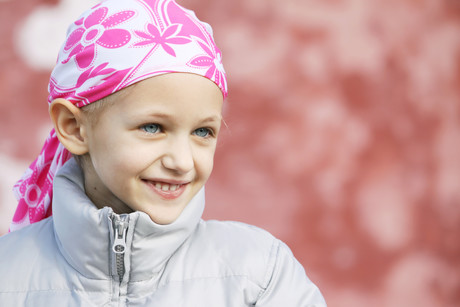Personalised medicine trial for childhood cancers

Personalised medicine for childhood cancers in Australia is now one step closer, following yesterday’s launch of the Zero Childhood Cancer program’s national clinical trial.
Led by the Children’s Cancer Institute and the Kids Cancer Centre at Sydney Children’s Hospital, Randwick, Zero Childhood Cancer is said to be one of the world’s most comprehensive child cancer personalised medicine studies. The program recognises that each child’s cancer is unique; thus, they respond differently to anticancer treatment.
Now, scientists from 13 Australian and international research institutes and doctors from all eight of Australia’s kids’ cancer centres are working together to identify and recommend new treatment options. Detailed laboratory analysis of tumour samples will help identify the drugs most likely to kill each child’s specific cancer, with treatments tailored to suit the individual cancers of children with the highest risk of treatment failure or relapse.
The program also recognises that cancers evolve, so a child’s cancer at relapse can be quite different at the molecular level to the cancer at diagnosis.
Professor Michelle Haber AM, executive director of the Children’s Cancer Institute and research lead for Zero Childhood Cancer, said personalised treatment gives kids with the most aggressive cancers the best chance of surviving their disease because it is based on reliable scientific information, such as individual genetic mutations, unique to that child’s cancer.
“Using the latest molecular profiling techniques and laboratory testing of patient cancer cells with anticancer drugs, Zero Childhood Cancer will give the most detailed diagnosis possible in Australia to date for children with the most aggressive cancers,” she said. “It is one of the most complex and comprehensive personalised medicine programs in the world.”
With Zero Childhood Cancer, relapsed cancers will be biopsied where possible, which is not currently the standard of care for most cancers. Relapsed cancer cells will be analysed in high levels of detail to give doctors much more information to guide targeted treatment decisions. This gives children with high-risk relapsed cancers the best hope yet.
Another benefit of personalised medicine is the potential to refine or change an individual child’s cancer subtype. Cancer diagnoses may be changed once detailed genetic and other molecular tests are done, opening up new treatment options.
Associate Professor Tracey O’Brien, director of the Kids Cancer Centre, said targeted therapies such as those identified through Zero Childhood Cancer will allow a much more sophisticated approach, not only benefiting the children on the program but also unlocking further discoveries that will ultimately benefit future patients.
“We believe this will improve survivorship whilst reducing the impact of drug toxicity,” said Associate Professor O’Brien. “The scale and sophistication of translating this type of discovery directly to the patient’s bedside in real time, wherever they are in Australia, is unprecedented.”
The national clinical trial builds on a NSW pilot study of nearly 60 children begun in late 2015 for children with the most aggressive cancers whose chance of survival on standard treatments was less than 30%. The pilot study proved the program’s feasibility, putting in place the logistics and laboratory testing needed to analyse patient tumours and get meaningful results back to doctors in real time.
The expanded clinical trial will enrol more than 400 Australian children over the next three years, bringing the most advanced diagnostic technologies close to home. The data gathered will enable evidence-based treatment options in the present, and build a powerful research repository for the future.
The trial is now open in Sydney, with other cities set to open in a staged rollout over coming months. It will be available to every Australian child with high-risk childhood cancer, regardless of the underlying type or diagnosis. It is expected to be particularly beneficial to those with less than a 30% survival rate, either at initial diagnosis or following relapse.
Babies of stressed mothers likely to get their teeth earlier
Maternal stress during pregnancy can speed up the timing of teeth eruption, which may be an early...
Customised immune cells used to fight brain cancer
Researchers have developed CAR-T cells — ie, genetically modified immune cells manufactured...
Elevated blood protein levels predict mortality
Proteins that play key roles in the development of diseases such as cancer and inflammation may...



